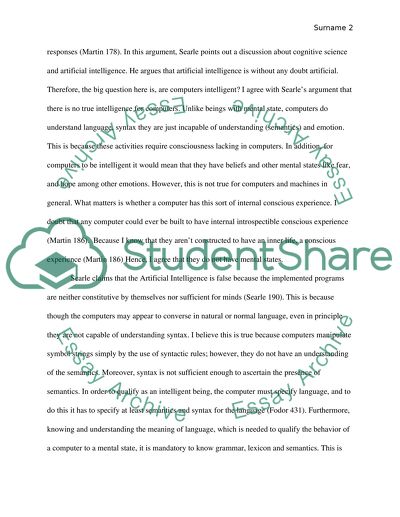Cite this document
(“Chinese Room Argument as a Response to the Behaviourist's Claim that Research Paper”, n.d.)
Chinese Room Argument as a Response to the Behaviourist's Claim that Research Paper. Retrieved from https://studentshare.org/information-technology/1479875-phil
Chinese Room Argument as a Response to the Behaviourist's Claim that Research Paper. Retrieved from https://studentshare.org/information-technology/1479875-phil
(Chinese Room Argument As a Response to the Behaviourist'S Claim That Research Paper)
Chinese Room Argument As a Response to the Behaviourist'S Claim That Research Paper. https://studentshare.org/information-technology/1479875-phil.
Chinese Room Argument As a Response to the Behaviourist'S Claim That Research Paper. https://studentshare.org/information-technology/1479875-phil.
“Chinese Room Argument As a Response to the Behaviourist'S Claim That Research Paper”, n.d. https://studentshare.org/information-technology/1479875-phil.


